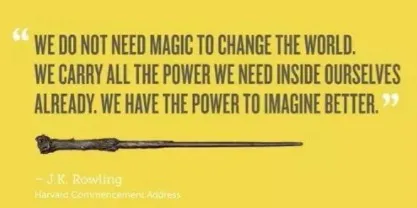

Why entrepreneurs should ‘Break Own Barriers’ through empathy and imagination
My take on why we need empathy and imagination in our entrepreneurial journey
We started our journey at EGK FOODS by bootstrapping the first few months, initially out of my house kitchen. At the first two exhibitions that we participated in, we had a direct competitor which had exactly the same product as ours. The two stalls were almost next to each other and we probably got many of the same leads. I didn't see my counterpart at the next few exhibitions so I assumed they got enough business to start operations on a much larger scale. A couple of months later while we were cold calling to follow up on dead leads, we found that some clients from the first two exhibitions were willing to switch suppliers. After wheedling out the real reason, we got to know that our competitor- the same guy who was positioned next to us in that exhibition- had closed shop.
My initial reaction was that of ecstasy as we had pushed a competitor out of business temporarily. But soon enough, I felt a surge of uncomfortable emotions, best describe as empathy to the problems faced by my competitors. Here, I was imagining what I would have done differently in his place. And I realised there was very little that I would have done differently. So I did something unprecedented. I fished out the competitor’s visiting card and called him.
We had a frank discussion about the trouble he had gone through. We also realised that the market that we were looking at was huge so if we pooled our efforts maybe we could go further.
It clicked. In the last six months, we have forged some amazing deals by working together. During this period, we managed to convert more competitors into allies just by sharing our learnings and knowledge. Our WhatsApp group has 50 members from 6 states and we are now toying with the idea of forming a national association to help others like us.
That initial surge of happiness I felt when I heard that he had shut down was ‘schadenfreude’, a German word that refers to the pleasure felt at the misfortune of others.
Beyond schadenfreude lies empathy. Being empathetic leads you to not only become a better human, but also helps to excel in business. If you indulge your schadenfreude, you'll never get to empathy. But if you channelise schadenfreude, you can achieve greater heights.
Let me explain.
In his book ‘ANTIFRAGILE’, NICHOLAS NASSIM TALEB talks about how stochastic resonance or adding random noise to the background, makes you hear the sounds (say, music) with greater accuracy. When I used to play online poker, I had 10 screens open at the same time. However, I found that along with the 10 screens, if I had some music playing or a TV show running in the background, I could concentrate much better. Once I broke through that initial barrier, the performance quotient was higher.
Similarly, I think schadenfreude is just an inbuilt barrier which needs to be overcome. Once conquered, you achieve better performance in every department of life.
Remember, J. K. Rowling (author of the Harry Potter series) stressed on the importance of imagination in her speech at Harvard University six years back. Not just for the purpose of writing fictional stories, but to ensure very human can see a better future for himself/ herself and act on exactly what they want to be.
Often times, the size of our dreams and aspirations are stunted by our own lack of imagination, preventing us from achieving what is possibly our true potential. That’s another barrier, one that we create for ourselves.
Whenever, I have had a conversation about technology and the role of technology in India, I see a wide divergence of opinion depending on the age profile of the person I'm talking to. Older the person, more pessimistic the response. The usual lines are “This is not possible in India” or “This idea is not suited for Indian conditions.” Actually the older demographic finds it extremely difficult to adapt to new technologies because they have been doing things one way for such a long time. Habitual changes are more difficult to affect if you have been accustomed to a set pattern of thinking for a long time.
Younger people seem to be more accepting towards technology. Not only because they use these technologies in their day to day lives, but also because they understand the applicability. Today, all those things that were “not possible in India” are easily possible if we disregard the barriers to our thinking, the barriers to our progress.
While i categorise them as young entrepreneurs, i would like to say here that what i actually mean is entrepreneurs who are young in their thinking, irrespective of age. A great example of this is Mr Ashok Soota who started Happiest Minds well into his 60s. Jack Ma, President of Alibaba group, often in his talks, emphasises on the importance of youngsters and the pivotal roles they play in his company. A young mindset is what is required.
Although young entrepreneurs have these barriers forced upon them by the experienced hands of the industry, the future we are trying to build incorporates technologies that will probably seem like magic to us. If we are to create such a magnificent future, it falls on us, the young entrepreneurs, to imagine it into existence.
To put things in perspective, the way to a better future begins with a better self. The key is to break through our barriers, those we are born with, those we put on ourselves and those that others force upon us. The future we are trying to create has not existed before. So let no one tell us what it looks like. Let’s create the best future possible for all of us, without being mindless or reckless in the journey.






